Control Obrero
One Question in On State of Nature Blog
What does class struggle mean today?

What does class struggle mean today?
Class struggle, that is, the struggle between labour and capital, is not at all a concept that belongs to the past. In a world of growing inequality, it is a reality more pertinent than ever. A recent study has revealed that since 2008 the wealth of the richest 1% has been growing at an average of 6% a year, while the wealth of the remaining 99% of the world’s population has been growing by only 3%. By 2030, the world’s richest 1% will control nearly two-thirds of the world’s wealth.
Occupy, Resist, Produce - Scop Ti
////// Watch film - available now //////
In “Occupy, Resist, Produce – Scop Ti”, the workers tell the story of their collective struggle and speak about their democratic organization of work. They describe the difficulties and contradictions of trying to keep up large-scale industrial production while at the same time sticking to their values and principles: solidarity, organic production and collaboration with local and regional producers.
Entrevista con Dario Azzellini
Comunas y control obrero en Venezuela
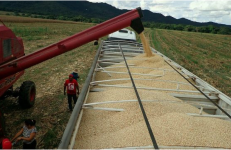
“Las comunas deben ser el espacio sobre el cual vamos a parir el socialismo”, son palabras pronunciadas por Hugo Chávez en uno de sus famosos programas de radio “Aló presidente”. Hemos entrevistado a Dario Azzellini* para hablar de las comunas venezolanas y de las nuevas formas de participación, así como de sus éxitos, dificultades y contradicciones. Dario Azzellini ha investigado y documentado estos temas a lo largo de toda la Revolución Bolivariana. Haymarket Books acaba de publicar en edición de bolsillo su libro Communes and Workers’ Control in Venezuela.
Entrevista a Dario Azzellini
Desafiar el capitalisme per mitjà del control obrer, Per què és important el control obrer?
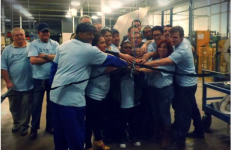
Una característica comuna de cada situació de crisi, des dels aixecaments de principis del segle XX fins a les reestructuracions neoliberals de la fi d'aquest mateix segle, és l'aparició del control obrer: els obrers s'organitzen per fer-se càrrec dels seus llocs de treball per tal de defensar els seus llocs de treball i les seves comunitats.
Entrevista con Dario Azzellini
Desafiar al capitalismo por medio del control obrero
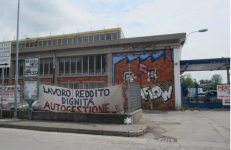
Una característica común de cada situación de crisis, desde los levantamientos de principios del siglo XX hasta las reestructuraciones neoliberales de finales de ese mismo siglo, es la aparición del control obrero: los obreros se organizan para hacerse cargo de sus lugares de trabajo con el fin de defender sus puestos de trabajo y sus comunidades.
Dario Azzellini em: Movimentos Sociais e Crises contemporâneas, Vol. 3, Editado por Alves de Lima Filho, Paulo; Tahan Novaes; Henrique; Macedo, Rogério
“Toma de empresas y gestión bajo control obrero en Europa como respuesta a la crisis”
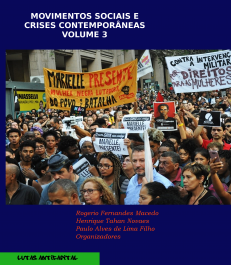
„Poderíamos dizer que este volume trata dos processos de transformação social sob o capital, contra ou a favor dele, das suas transições socioeconômicas no sentido da emancipação da classe trabalhadora quanto do capital, neste quadrante histórico de reversões conexas e complexas. A captura desses três ricos processos se dá em grande estilo, possibilitando ao leitor e alunos uma rica e apaixonante leitura de tão vitais processos.
interview with Dario Azzellini
Communes and Workers’ Control in Venezuela
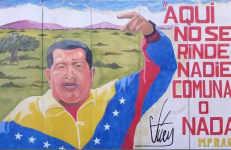
“The communes should be the space in which we are going to give birth to socialism.” – these were the words of Hugo Chávez in one of his famous presidential broadcasts. To discuss the Venezuelan communes and the new forms of participation, as well as its successes, difficulties and contradictions, we have interviewed Dario Azzellini*. He has investigated and documented theses issues throughout the Bolivarian Revolution. His book Communes and Workers’ Control in Venezuela has recently been released in paperback by Haymarket Books.
interview with Dario Azzellini
Challenging capitalism through workers’ control
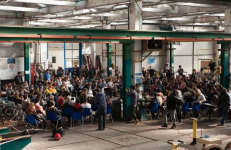
A common feature in every crisis situation, from the upheavals of the early 20th century to the neo-liberal re-structurings of the late 20th century, is the emergence of workers’ control – workers organising to take over their workplaces in order to defend their jobs and their communities.
Betriebsbesetzungen und Arbeiten in Selbstverwaltung
Vom Protest zum sozialen Prozess
Betriebsbesetzungen mit dem Ziel der Produktion in Selbstverwaltung sind seit der Jahrtausendwende aus Lateinamerika, vor allem aus Argentinien, bekannt. Im Laufe der aktuellen Krise haben Beschäftigte auch in Europa und Nordamerika erfolgreich Besetzungen von Betrieben durchgeführt, die von der Schließung bedroht waren.
Aktuelle Analyse zu rückeroberten Betrieben. Gespräch mit Dario Azzellini
„Sie sind nicht nur Arbeitskräfte“

AT: Du dokumentierst in deiner Arbeit rückeroberte Betriebe in Europa und Lateinamerika. Ist das so bewusst geographisch gewählt, oder gibt es in den anderen Teilen der Welt weniger Beispiele?

























